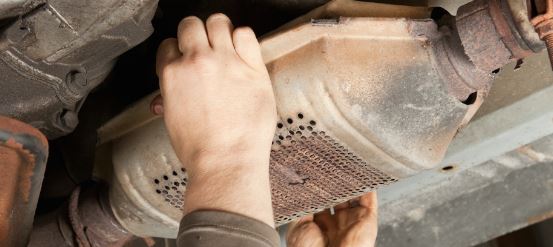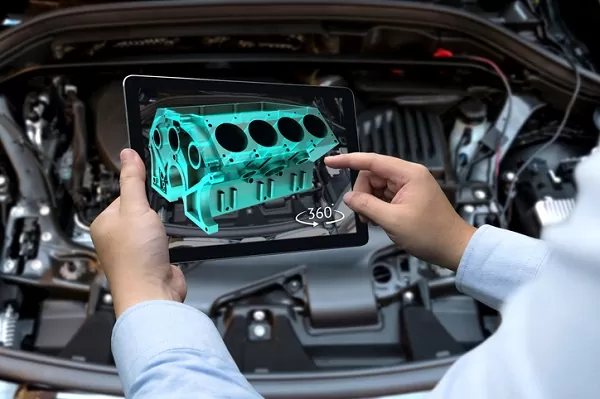Catalytic converters are a vital part of modern cars. They help to reduce harmful emissions and keep the air clean. But what happens if your car doesn’t have one? Can you still drive it? Is it legal to drive without a catalytic converter? In this blog post, we will discuss the consequences of driving without a catalytic converter and whether or not it is legal in your state.
Lets take a look!
Why Do Cars Have Catalytic Converters?
A catalytic converter is a device that is installed in modern cars in order to convert the harmful pollutants in exhaust gas into less harmful substances. The converter contains a catalyst, which is usually made of platinum or palladium. When the engine is running, the catalyst reacts with the pollutants in the exhaust gas and converts them into less harmful substances such as carbon dioxide and water vapor.
There are several reasons why catalytic converters are installed in modern cars. First, they help to reduce the pollution emitted by the car. Second, they improve the fuel efficiency of the car by reducing the amount of harmful pollutants that need to be burned off in the engine. Finally, catalytic converters help to extend the life of the car’s engine by reducing the amount of wear and tear on the engine caused by the burning of pollutants.
Do All Cars Have Catalytic Converters?
The answer is no, not all cars have a catalytic converter installed. There are many different types of cars on the road and each one has its own set of required emissions control devices. However, most passenger cars sold in the United States since 1975 have been equipped with a catalytic converter.
While they are not required in every country, an estimated 90% of the world’s vehicles now have them installed.
Can A Car Be Driven Without a Catalytic Converter?
The answer to this question is a bit complicated. A catalytic converter can technically be removed, but it’s not advisable and doing so may trigger a check engine light in some cars. The reason why some people remove the catalytic converter is for improved performance and less restrictions in the exhaust flow. However, keep in mind that the catalytic converter is there to reduce emissions, so removing it may make your car less environmentally friendly.
Will Driving With No Catalytic Converter Damage The Engine?
There are many myths out there regarding this question. One of the most common is that driving a car without a catalytic converter will damage the engine. The truth is, there is no harm caused to the engine by doing this.
In fact, the only thing that might happen is that the car will produce more emissions than it would with a catalytic converter. So, if you’re looking to save money on car repairs, driving without a catalytic converter is not going to damage your engine.
If your car doesn’t have a catalytic converter, there are a few things you should know. First, your check engine light is going to be on constantly. This is because the converter’s job is to convert harmful emissions into less harmful ones before they exit the tailpipe. Without it, those emissions will just flow straight out, triggering the light. ( Unless you have your cars ECU tuned to ignore this )
Additionally, your car will be much louder than it was before. This is because the converter helps muffle noise from the engine. Finally, your car’s emissions will be increased.
Is It Illegal To Drive A Car Without A Catalytic Converter?
If you live in the United States, it is not currently illegal to drive a car without a catalytic converter. However, depending on your state, you may be subject to different emissions testing requirements. For example, some states require that all vehicles have a catalytic converter in order to pass an emissions test.
Others only require testing for vehicles manufactured after a certain year.
So, while it is not currently illegal to drive without a catalytic converter, it is something you should check on before making any modifications to your vehicle. Additionally, if your car does not have a catalytic converter and fails an emissions test, you may be subject to fines or other penalties.
Therefore, it is always best to check with your local DMV or emission testing center before making any changes to your car.
How Long Can You Drive Without A Catalytic Converter?
The answer is that technically there is no limit to how long you can drive without one , but you are at risk of fines and penalties if caught. Depending on your state, the penalties can range from a slap on the wrist to large fines or even jail time. If your car is not equipped with a catalytic converter, it is best to check with your local laws before driving it on the road.
Some drivers even go to lengths such as installing fake catalytic converters on their cars so that they can pass roadside visual checks.
For most states, it is legal to drive a car without a catalytic converter if the car was manufactured before 1975. Some states require that all cars have a catalytic converter, regardless of when they were made. If you are caught driving without a catalytic converter in a state that requires one, you could be fined or even jailed. The best way to avoid any penalties is to check with your local laws before driving your car on the road.
Go Home









